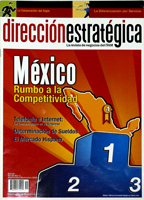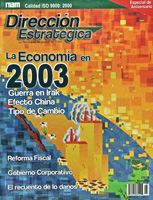 By: Rogerio Domenge and Imanol Belausteguigoitia
By: Rogerio Domenge and Imanol Belausteguigoitia
It is widely known that in Mexico and elsewhere in Latin America, small and mid-sized businesses play a significant role in economic activity (Kantis & Ishida, 2002) and social dynamics. According to the National Institute of Statistics and Geography (INEGI, 2007), in Mexico 95.5 percent of manufacturing, retailing and service organizations are micro-sized businesses, while 3.5 and 0.8 percent are small and mid-sized companies, respectively. These employ 30.8 percent of all the workers in the country. Just 0.2 percent of the companies are large firms. At the same time, it is estimated that nine out of every ten organizations in Mexico are family owned, and only one in three of them is passed down to the next generation (Belausteguigoitia, 2004).

































Transparency and Corporate Social Responsibility
The etymology of words can provide important knowledge and convey an experience directly from both the external and internal world. Human beings use language to understand, interpret and even transform the world (González, 1996). The concept and the term “responsibility” is not modern and appears for the first time in the English and French languages in the year 1787. The first usage of the term was political, in expressions such as “government responsibility” or “responsibility of the government” to express the nature by which the constitutional government acted under the control of the citizens. (Abbagnano, 1989). Social responsibility means the action of responding to society through the consequences of our acts in the exercise of freedom. Corporate social responsibility (CSR) is the specific response of a company to society – including both the positive and negative impact of its activities – which contributes to sustainable development. Today there are conflicting positions regarding the regulation and content of CSR reports demanded of the companies. This paper briefly describes the various reporting guidelines used throughout the world and their outlook.
(read more…)